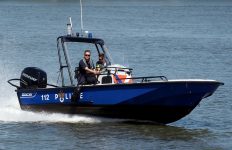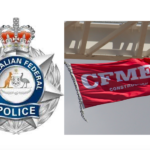A Quick Guide to Marine/Waterway Offences

Being behind the wheel of a car is not the only way you can get in trouble for your driving.
If you are driving a boat there are a number of different offences and penalties you can face if you are alleged to have done the wrong thing, from speeding to driving under the influence of alcohol.
Marine and waterway offences are overseen by Roads and Maritime Services, which is part of the NSW Government.
If you have been charged with a maritime offence, it’s just as important to seek legal advice as if you had been charged with a traffic offence.
In many cases, the penalties can be severe and cost you hundreds or even thousands in fines.
Many of the same laws apply when you are behind the wheel of a boat as when you are driving a car.
Some of the most common marine and waterway offences include:
Being under the influence of drugs or alcohol
Much like when you are driving a car, any time you are driving a boat, even when it’s drifting, you can be subject to breath testing by police to check for alcohol in your system.
It is an offence to drive a boat under the influence of alcohol and if you are a recreational driver over the age of 18 and you are found driving a boat with a blood alcohol concentration over 0.05, you can be issued with a court attendance notice by Maritime Boating Safety Officers.
Recreational drivers under the age of 18 are not permitted to have any alcohol in their system at all.
Random breath testing can’t be applied if a vessel is berthed, at anchor or moored.
If you have been charged with PCA offences on a boat which was berthed, moored or at anchor at the time, you should contact a lawyer as soon as possible.
Speeding
When you’re driving a boat it’s important to pay attention to the speed limits.
Disobeying a speed sign is an offence which can lead to an on-the-spot fine or higher penalties if dealt with in a court.
Penalties for speeding in a boat range from a $100 fine for speeding at less than 10 knots, to $500 for disobeying a speed sign by more than 10 knots.
Other maritime offences
There are a number of other maritime offences which can lead to criminal charges and these include:
- Naval vessels. Climbing, attaching yourself or helping someone else attach themselves to a naval vessel is an offence. Also, going within a specified distance of a naval vessel can leave you facing criminal charges.
- Operating a vessel negligently can lead to a fine of up to $500, and if it leads to someone’s grievous bodily harm or death, you will have to face court. Negligence can be taken to include dangerous or negligent driving or navigation.
- Driving without a licence. Driving a boat without a licence can leave you with a fine of $100 or a court attendance notice if you drive while disqualified. If you are driving a boat it’s important that you have a valid licence and that the boat is registered appropriately.
- Failing to stop when requested by police or maritime authorities is also an offence, as is refusing to allow a maritime authority or police to board the vessel. The penalty for this offence is a fine of $500.
If you are out on the waterways it’s important to be aware that, just like on the roads, you can get into trouble for speeding, drinking alcohol and driving without a licence.
In many cases, the penalty will be a fine but if the offence is considered serious, you could have your licence taken away or even face court.
If you go to court for a marine or waterways offence, you could find that the penalties are harsher and fines higher than if they are issued on-the-spot, so legal representation and advice from lawyers who are experienced in boating offences is highly recommended.
Going to court for a traffic offence?
If you are going to court for a traffic offence, call or email Sydney Criminal Lawyers anytime to arrange a free first consultation with an experienced, specialist traffic lawyer who will accurately advise you of your options, the best way forward, and fight for the optimal outcome in your specific situation.






